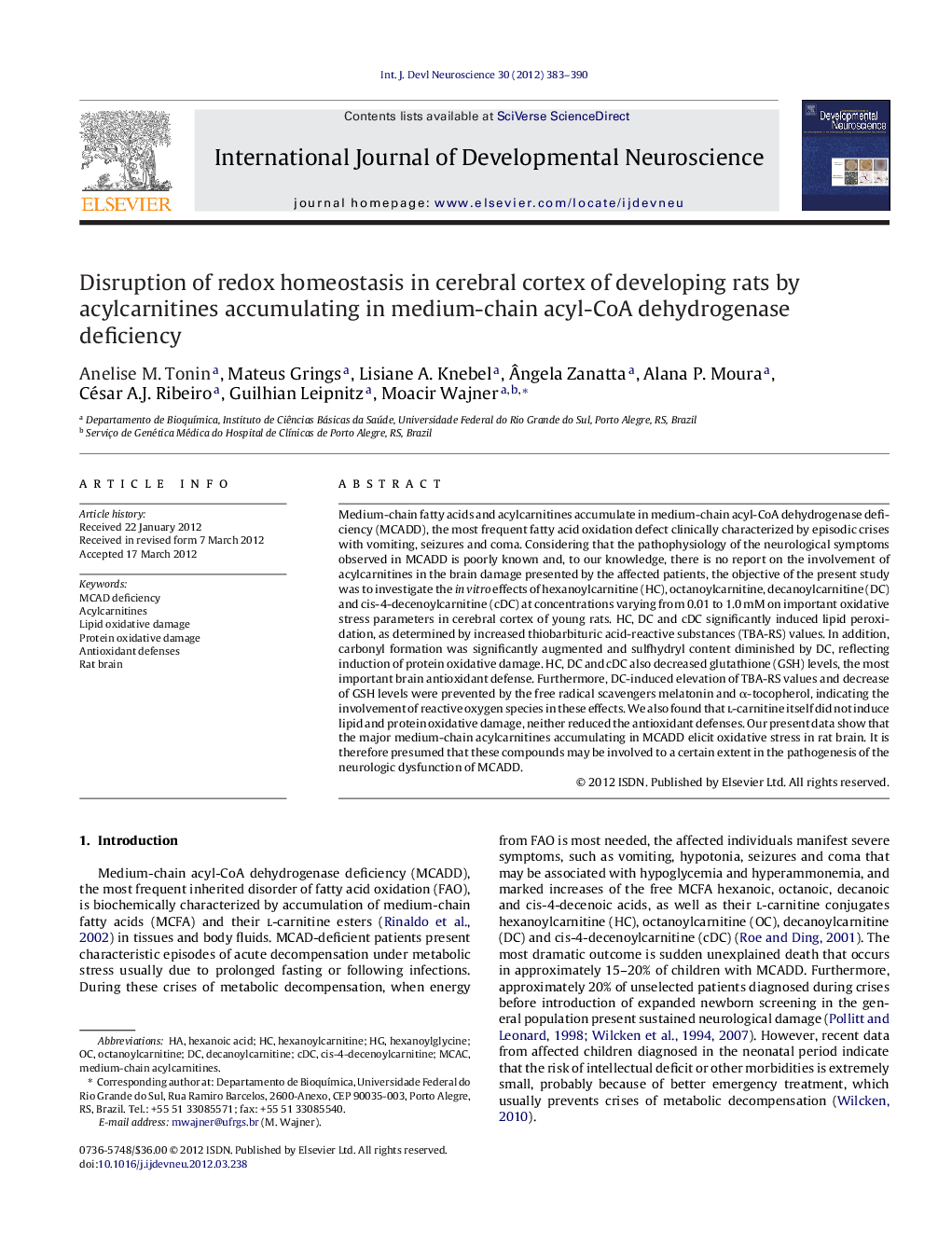| کد مقاله | کد نشریه | سال انتشار | مقاله انگلیسی | نسخه تمام متن |
|---|---|---|---|---|
| 2786299 | 1568411 | 2012 | 8 صفحه PDF | دانلود رایگان |

Medium-chain fatty acids and acylcarnitines accumulate in medium-chain acyl-CoA dehydrogenase deficiency (MCADD), the most frequent fatty acid oxidation defect clinically characterized by episodic crises with vomiting, seizures and coma. Considering that the pathophysiology of the neurological symptoms observed in MCADD is poorly known and, to our knowledge, there is no report on the involvement of acylcarnitines in the brain damage presented by the affected patients, the objective of the present study was to investigate the in vitro effects of hexanoylcarnitine (HC), octanoylcarnitine, decanoylcarnitine (DC) and cis-4-decenoylcarnitine (cDC) at concentrations varying from 0.01 to 1.0 mM on important oxidative stress parameters in cerebral cortex of young rats. HC, DC and cDC significantly induced lipid peroxidation, as determined by increased thiobarbituric acid-reactive substances (TBA-RS) values. In addition, carbonyl formation was significantly augmented and sulfhydryl content diminished by DC, reflecting induction of protein oxidative damage. HC, DC and cDC also decreased glutathione (GSH) levels, the most important brain antioxidant defense. Furthermore, DC-induced elevation of TBA-RS values and decrease of GSH levels were prevented by the free radical scavengers melatonin and α-tocopherol, indicating the involvement of reactive oxygen species in these effects. We also found that l-carnitine itself did not induce lipid and protein oxidative damage, neither reduced the antioxidant defenses. Our present data show that the major medium-chain acylcarnitines accumulating in MCADD elicit oxidative stress in rat brain. It is therefore presumed that these compounds may be involved to a certain extent in the pathogenesis of the neurologic dysfunction of MCADD.
► Medium-chain-acylcarnitines (MCAC) accumulate in MCAD deficiency.
► MCAC provoke lipid and protein oxidative damage in rat brain.
► MCAC reduce antioxidant defenses in rat brain.
► Antioxidants prevent MCAC-induced lipid oxidation and reduction of GSH levels.
► Antioxidants may therefore represent an adjuvant therapy for MCAD deficient patients.
Journal: International Journal of Developmental Neuroscience - Volume 30, Issue 5, August 2012, Pages 383–390